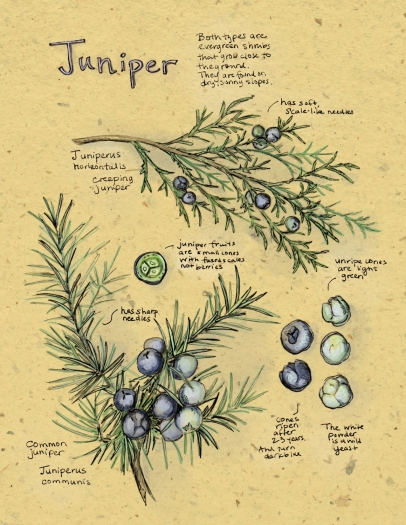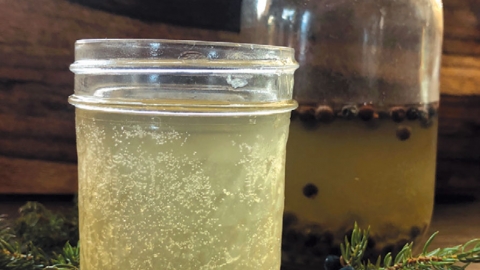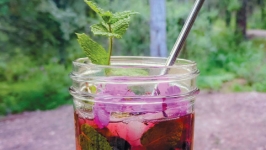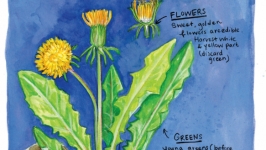All About Juniper
Juniper, found throughout the Northern Hemisphere, has been used by many cultures as a medicine, spice, and drink flavoring.
The plant’s aromatic fruits are actually cones, not berries, whose flavor enhances cooked meats and roasted vegetables. Beverley Gray writes in The Boreal Herbal that she grinds dried juniper cones in a peppermill for adding to any dish. She adds that juniper’s powerful oil helps the digestive system deal with flatulence-producing foods, so she especially recommends adding some ground juniper berries to beans or adding a few fruits to sauerkraut.
Juniper is perhaps best known for its use in drinks. It is a distinctive ingredient in gin. But it is also infused in vodka and in bitters, and in Northern Europe, it is even fermented in beer. In Bosnia people make a fermented soda using juniper berries called smreka. This beverage is light and refreshing and a bit like lemonade. Because juniper fruits are inoculated with wild yeast (the white powder on the outside), they can be fermented in water.
Editors’ Note: Large, frequent doses of some juniper species are toxic and can cause kidney problems. Many wild plants look alike and some are poisonous. If you are unfamiliar with foraging wild plants, go with a knowledgeable friend who can teach you, and consult experts and guidebooks frequently.










